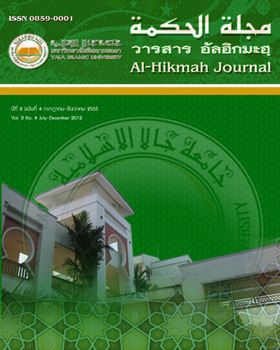Suggestions for Making English Course Materials More Relevant to the Needs of Muslim Students
Abstract
Some course materials used in English-language classes conflict with Islamic values and the cultural practices of Muslim learners. This article proposes alternatives to adapt teaching materials to suit the learner’s needs and their cultural backgrounds. It also discusses the importance of maintaining Islamic expressions and vocabulary in English classrooms. Teachers of Muslim learners should augment English education with Islamic principles, yet also be aware of different cultural practices. The author discusses the relevance of learning English to global affairs and the importance of understanding other cultures and ways of thinking, and recommends the development of an Islamic English.
References
Cunningsworth, A. 1994. Evaluating and selecting EFL teaching materials. Heinemann.
Littlejohn, A., and Windeatt, S. 1989. Beyond language learning: perspective on materials design. In R.K. Johnson (Ed.), The second language curriculum. Cambridge: Cambridge University Press.



